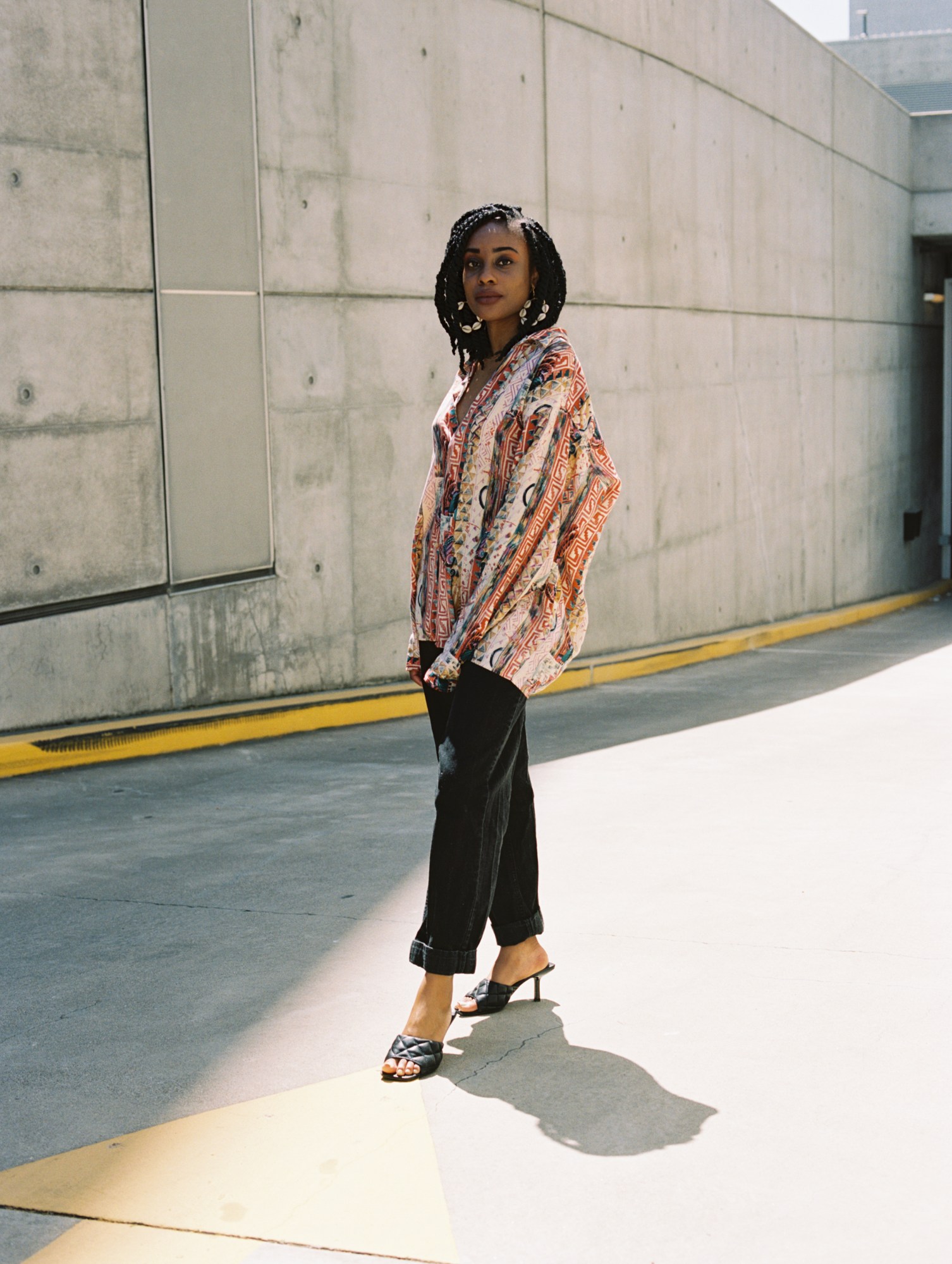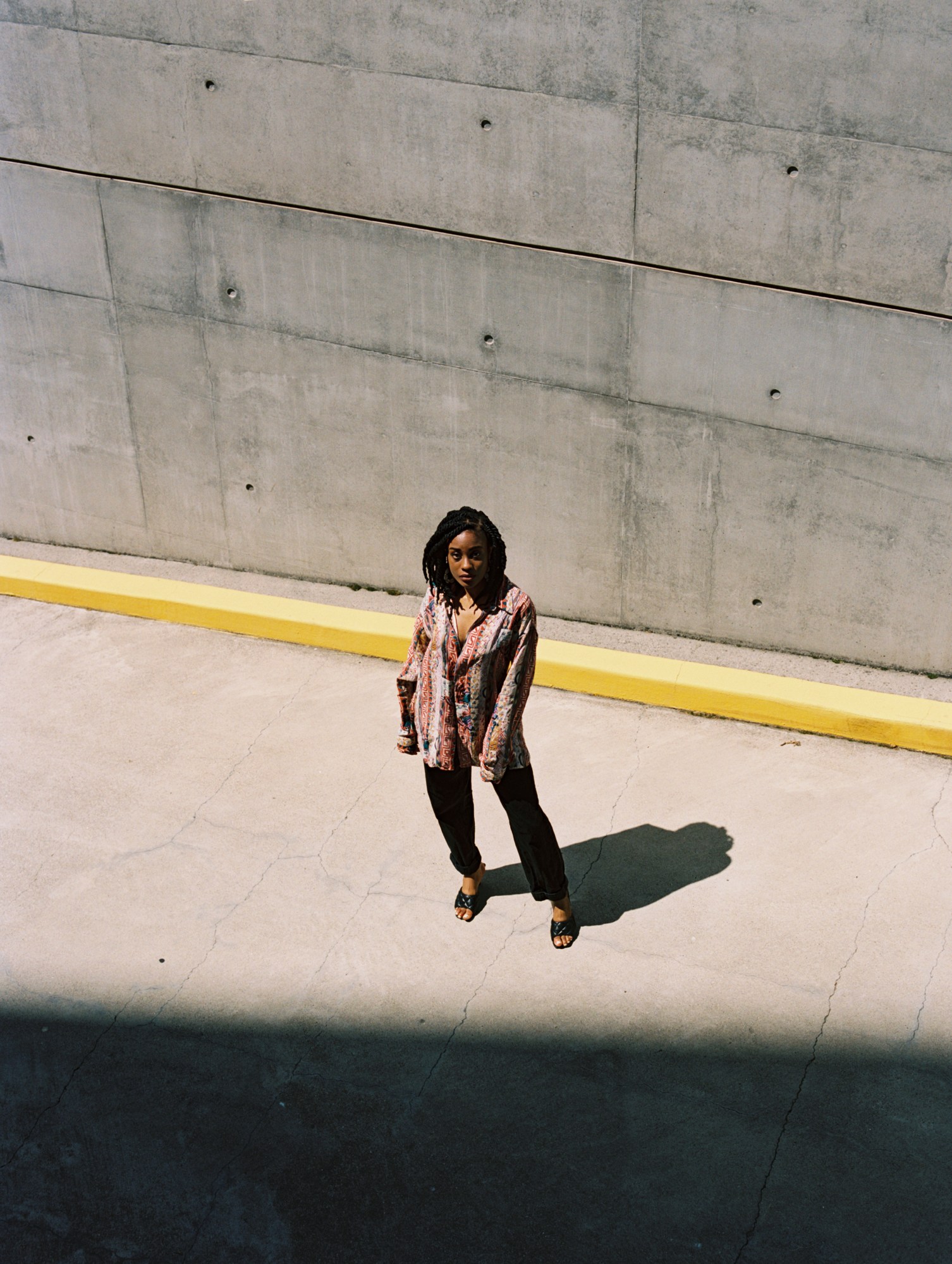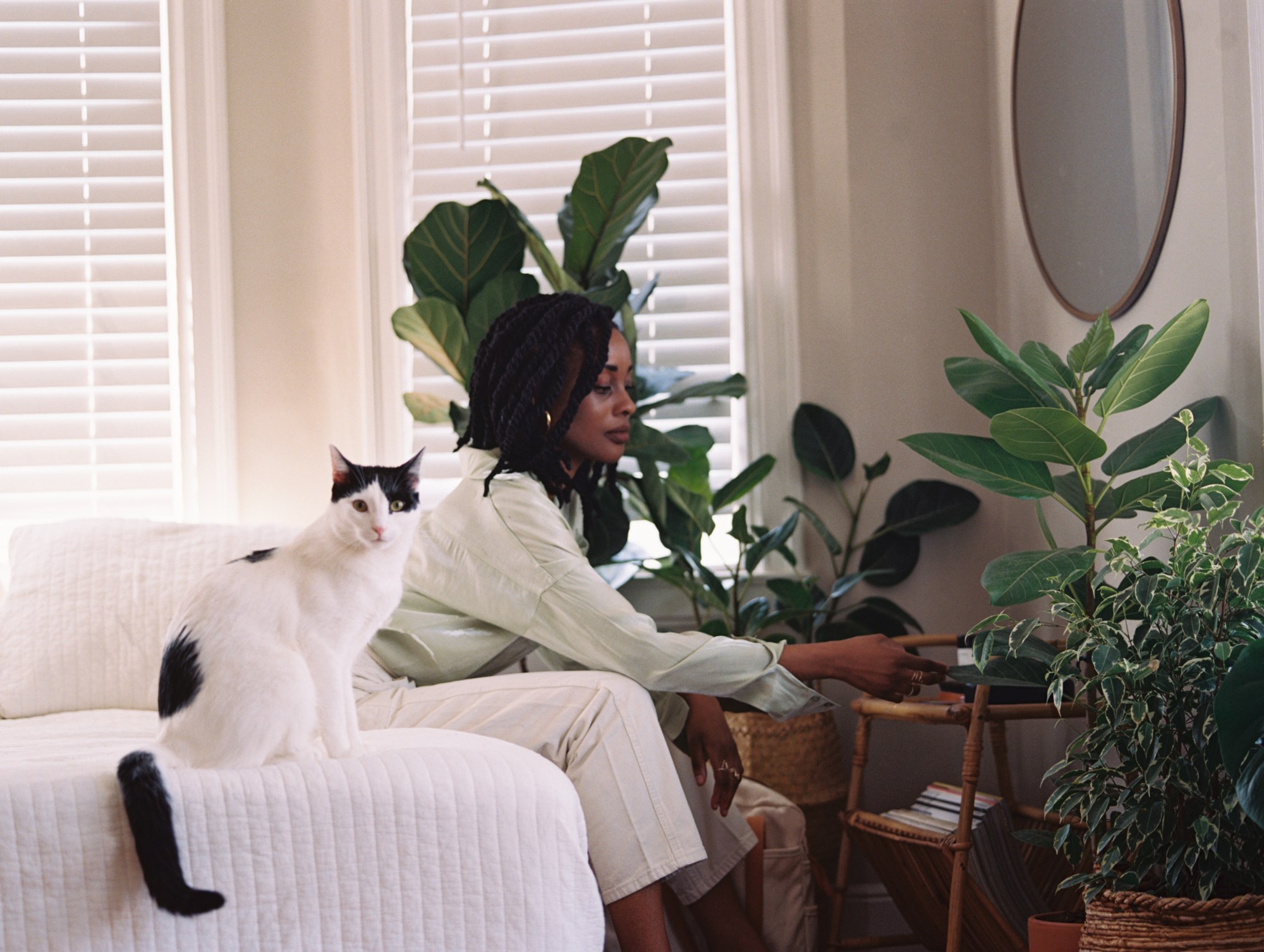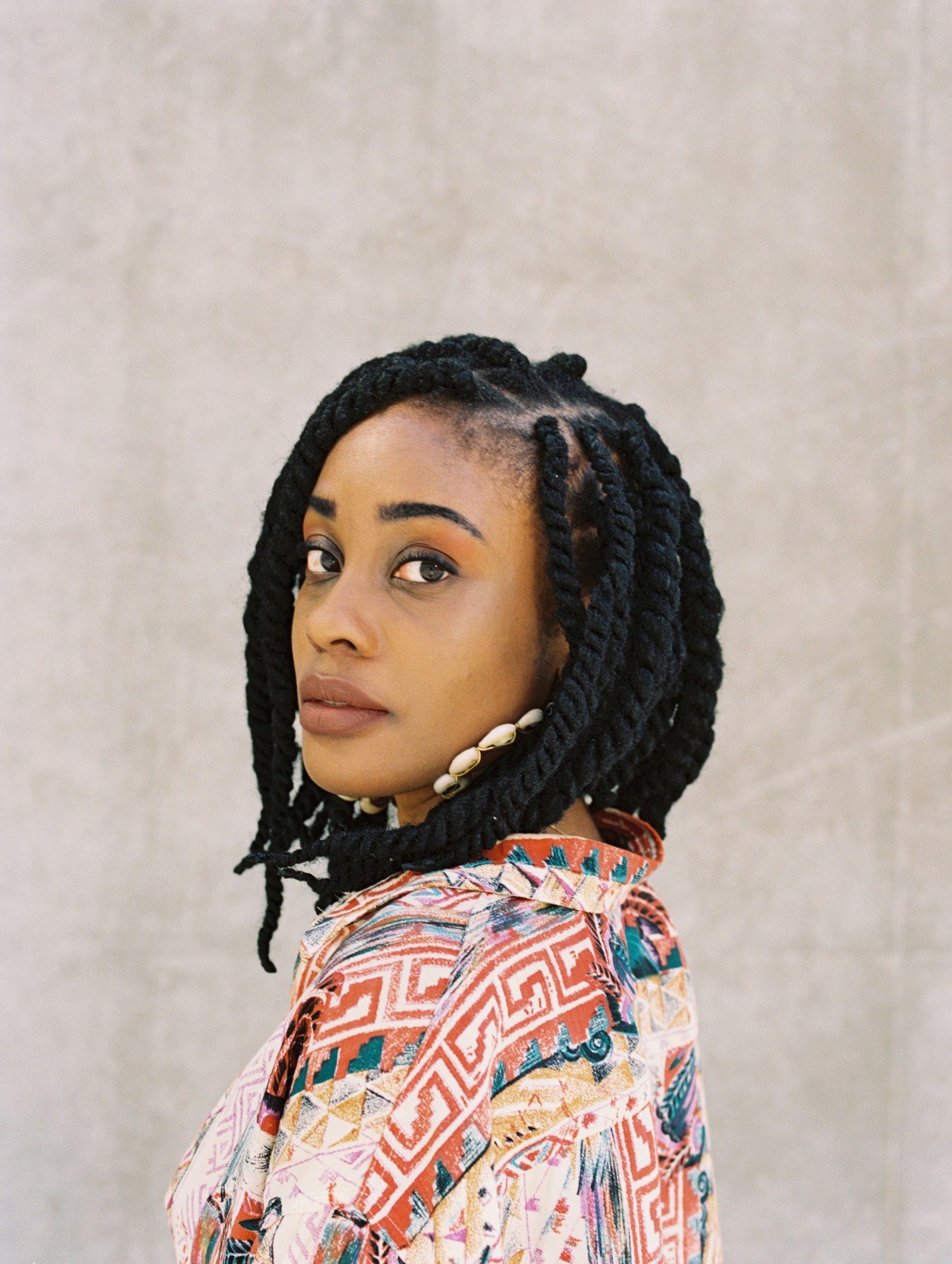“Healing Arts” is a series exploring self-love as a creative practice. In honor of #MentalHealthAwarenessMonth we asked four voices at the intersection of healing and creativity to share their stories each week in May.
“Without this racial conditioning, who would we be? And how can we move towards that person?” This is the operative question driving Making the Body a Home, an online wellness platform packed with courses designed to address racial trauma and conditioning. It is “a place where we are no longer subscribing to the harmful messages we have been taught about race—ones that tell white folks that they are superior, and tell Black, Indigenous, and people of color that we are inferior,” says Nigerian-American designer, author, educator and founder of this space, Jacquelyn Ogorchukwu Iyamah. “This messaging has impacted our thoughts, beliefs, and actions. There is a lot of shadow work involved. Making the Body a Home is about returning home to oneself,” she explains.
Jacquelyn is also known for the “love letters” and “tender reminders” she shares on Instagram, alongside resource posts and affirmations that feel like beautifully packaged offerings from your wisest friend. That she is able to engage topics like racial fatigue, gaslighting, and collective grief while making the experience feel soft and meditative makes sense, considering she has earned degrees in Social Welfare and Product Design. She has also published a book called The Geometry of Being Black, filled with poems expressing what it’s like to deal with colorism, colonialism, police brutality, hair politics and misogynoir.
Though she’s accomplished so much at only 26, Jacquelyn is currently thinking about what it means to slow down. “The world asks for so much from Black women,” she says. “Sometimes we don’t even realize how exhausted we are until we take a moment. My priorities right now are to be well-rested, to experience ease, to be filled with joy, and to revel in the love that envelops me.”

Have there been unexpected revelations in the process of building this space or the coursework?
When I first created Making the Body a Home, I was only offering a course to Black, Indigenous, and people of color. I intentionally did because how racism harms us is rarely acknowledged. As a result, there are so few spaces that allow us to heal from racial trauma. Our anti-racism efforts often center on educating white people, and while this is critical, it leaves less time, energy, and resources for communities of color to heal.
But after taking some months to reflect, I felt called to also create an offering for white folks who wish to unlearn their internalized racism. If Black, Indigenous, and people of color do the work, but white folks do not, then it will be very difficult for us to dismantle the system — the same factors that are harming communities of color will continue.
Still, it is important to acknowledge that the work is different for white folks than it is for BIPOC. While we are all working to make our bodies a home; we must acknowledge that there is a power dynamic. Racism is a form of abuse, and this means that the work that the person who benefits from the abuse needs to do is different from the work that person who is harmed by the abuse needs to do.
Why have you chosen to focus on racial wellness?
Racial wellness is about us having healthy relationships with our racial identities and that of those around us. Racial hierarchy in the US was created by colonizers who wanted to establish a system that said the further away you are from whiteness, the more inferior you are. This system has had harmful effects on the well-being of our society. It can cause BIPOC to internalize messages about racial inferiority, which impacts how we treat ourselves. It can also cause white folks to internalize messages about racial superiority, which impacts how white people treat Black, Indigenous, and people of color. But not enough people talk about it.
I want the health and wellness industry to look at racial wellness, I want jobs to look at racial wellness, I want schools to look at racial wellness. Creating a space to center on racial wellness is incredibly necessary for us to build a society that allows Black, Indigenous, and people of color to thrive the way we were born to thrive.


Why is processing racial trauma important? How does it connect back to overall mental health?
Racial trauma speaks to the mental, physical, spiritual, and emotional trauma that stems from experiencing racism. People who experience racial trauma could display symptoms like anxiety, depression, irritability, anger, hypervigilance, hopelessness, chronic stress, and symptoms that are similar to PTSD. However, it differs from PTSD in that it is cumulative.
Black people and other communities of color are often forced to hold these painful racial experiences inside our bodies. When you hold trauma in your body, it can lead to a variety of other issues such as inflammation in the body. This is why it is so important for us to create space to process.
How did you develop your unique methodology?
I’m really big on wholeness. To me, that means catering to the mental, emotional, physical, and spiritual body. This framework informs a lot of the way my courses are run. They incorporate different learning/relearning healing tactics to tend to the different parts of ourselves. These include audio meditations, video meditations, informational written content, inner child journaling, shadow-self explorations, and intentional homecoming guides.
What are your thoughts on the importance of lived experience vs. other forms of expertise around racial issues?
Often when BIPOC try to educate folks on racism, we are met with questions like “Where did you get this information from?”, “What are your references?”, “What are your credentials?”, “Where are the hard facts?”. One of the key characteristics of white dominant culture is objectivity. It leaves no room for other ways of knowing, such as lived experience, emotion, intuition, and memory.
Something I say to Black, Indigenous, and people of color who share educational resources around colonial or racial trauma is “Your experience is your expertise.” What many do not understand is that lived experience creates a deeper layer of knowledge and understanding. People with lived experience offer an educational lens that is intangible and irreplicable.
I was having a conversation about this with a loved one who said “the education that you get without the lived experience is inherently incomplete.” And I couldn’t agree more. This is why it is really important that individuals looking to educate themselves on colonialism and racism learn from Black and Indigenous folks.

Are there specific activities or tools you turn to in order to care for yourself?
I’ve recently learned that I am an HSP (Highly Sensitive Person) which is essentially someone with increased sensitivity to emotional, physical, or social stimuli. I always sensed that I was more sensitive to stimuli, but I didn’t know that a term describes many of the unique feelings and experiences that I’ve had over the years.
Being an HSP means that I need to be very intentional about replenishing myself. I love to pour back into myself by dancing, listening to music, reading, cooking a good meal, journaling, playing in nature, frolicking with loved ones, sound mediations, prioritizing alone time, laughing until I can’t breathe, and letting the sun kiss my skin.
What other topics are you curious about, or do you ever think about pursuing, be it a profession or hobbies just for fun?
Hobby-wise, I love anything art, design, or nature-related. I watch interior-design shows, I’m a big fashionista, I recently started creating Afro neo-expressionist animated art, and I’ve been planning to explore the world of pottery making. But I would say being in nature is probably one of my favorite things. In addition to all my green adventures, I’ve been itching to go to a community garden and get my hands in the soil to reconnect with the earth. These are the types of activities that make me feel like myself.
Career-wise, I’ve been doing a lot of work in the Design for Equity & Inclusion space. I love to strategize on how we can design more equitable and inclusive products, experiences, and services that cater to BIPOC. Being able to unpack how bias within design teams and design processes leads to bias in what we design is important to me.
Who are some of the leaders, activists, scholars or artists that have impacted you most?
I’m inspired by a large community of writers, poets, psychologists, and activists. Revolutionaries such as bell hooks, Audre Lorde, Derek Walcott, Dr. Robert T Carter, James Baldwin, Nayyirah Waheed, Frantz Fanon, Lillian Comas-Diaz, Dr. Thema, and Angela Davis have impacted me the most. In some way or another, these individuals gave me the knowledge, the understanding, and the language that I needed to come home to myself. For that, I am forever grateful.

Why do you think “Black trauma is more profitable than black joy, healing, and liberation”?
Black people have been dehumanized for centuries. People have spent more time witnessing our pain than revelling in our joy. We are often not seen as full, whole beings deserving of all the tender things life has to offer.
To me, this is why it’s so important to me to continuously relay the message that the phrase “Black Lives Matter” is not only about showing up for Black folks who have been killed. It’s also about showing up for Black lives when we’re alive. It is about recognizing the full humanity of a community that has been told it is less than human.
When I say Black Lives Matter, I mean they matter mentally, emotionally, spiritually, and physically. Mentally that means Black desires matter, Black ideas matter, Black voices matter, Black peace matters. Emotionally that means Black joy matters, Black laughter matters, Black excitement matters, Black love matters. Spiritually that means Black dreams matter, Black futures matter, Black empowerment matters, Black freedom matters. Physically that means, Black safety matters, Black rest matters, Black nourishment matters, Black longevity matters.
To truly champion Black lives, we must honor the wholeness of Black individuals. In all ways. Always.



